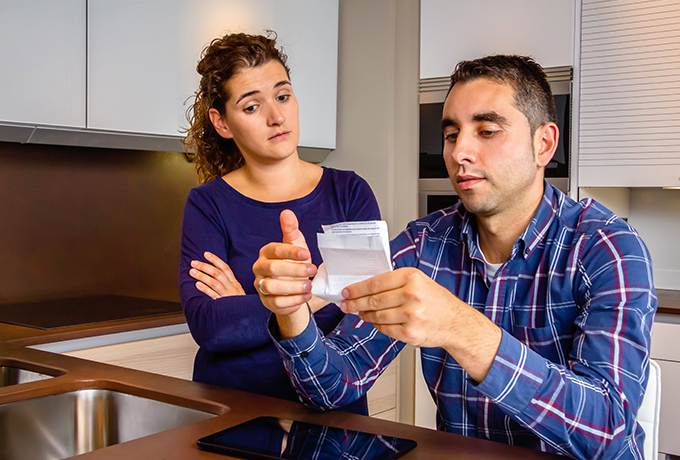Feeling stressed out and how to get help
You know what stress is. But what causes stress, and how can you better manage it?
Read moreIf you are feeling overwhelmed and suicidal, know that you are not alone. While these thoughts can feel painful and heavy, there is hope, and you can go on to live a meaningful life. This article provides coping techniques and strategies to support you through a difficult time.

When you’re experiencing thoughts of suicide, the pain you’re feeling right now might seem unbearable and heavy. While you may feel trapped or hopeless about your current situation, please know that help is available.
These overwhelming thoughts and feelings are a sign of significant emotional distress. These thoughts are not a reflection of reality or your worth as a person. What you’re experiencing is more common than you might think – research shows that 1 in every 6 people has experienced serious thoughts about taking their own life at some point in their lives.1
Please know that many Victorians who have felt this way reached out for support. They have been able to find hope and have gone on to live meaningful lives.
If you need support, call a free 24/7 helpline:
If you or someone you know is in danger, call 000 immediately.
Everyone is different, and what works for one person may not work as well for someone else. You can try different techniques and strategies and find the ones that work best for you.
When you’re feeling overwhelmed and having thoughts of suicide, these techniques can support you in the moment.
The 5-4-3-2-1 Method: When your thoughts feel overwhelming, try this grounding exercise.
Take a moment and name:
This method helps bring your focus back to the present moment and can reduce intense emotional distress.
Box Breathing: Try this breathing exercise to help take your focus off your suicidal thoughts.
For more on ways to ease your tension and reduce stress, read our articles on Mindfulness and Progressive Muscle Relaxation.
When you’re having suicidal thoughts, your mind often focuses on negative and hopeless perspectives. Recognise that what you are thinking is not true and challenge those thoughts. Be kind to yourself and remember that there is hope.
Below are some examples:
Negative thought: “Things will never get better.”
Helpful thought: “Things can get better with time and the right support.”
Negative thought: “I’m a burden to everyone.”
Helpful thought: “There are people who care about me and want to help.”
Negative thought: “There’s no point in trying.”
Helpful thought: “I can take things one day at a time.”
For more on challenging negative thoughts, read our article on Positive Self-Talk.
When you’re feeling distressed, it can be hard to believe that anything will make you feel better. But try distracting yourself by doing an activity you enjoy. You can make a list of things and keep it handy for times when you are feeling overwhelmed.
Here are some ideas:
You may not feel like it in the moment but connecting with other people you trust can help you to feel better. These connections can come from many places, including family, friends, religious and spiritual communities, support groups, mental health professionals, and crisis helplines.
It’s natural to feel nervous or unsure about how to begin discussing your struggles. Keep in mind that the person you’re talking to cares about you and wants to help. You can start by talking about what’s upsetting you and let them know you’ve been struggling.
Here are some ideas to get you started, or you can use your own words:
A suicide safety plan will remind you of reasons to live, provide you with ways of coping, and connect you with people and services who can help during difficult times.
Your safety plan should include:
You can write your safety plan on paper or type it on your computer or phone. You can also download the free Beyond Now app, which will help you create your safety plan.
If possible, limit your access to harmful items and remove anything that could be used to hurt yourself. Reducing access to means gives you time to reach out for support.
It is easy to neglect your physical health when you’re feeling distressed or experiencing suicidal thoughts, but paying attention to your diet, getting regular sleep, and keeping active can help you to feel more able to manage things.
People experience suicidal thoughts and behaviours in different ways. Recognising your suicide warning signs can help you know when you need to get support.
Below are some examples of the warning signs that indicate you should speak to a health professional to get support:
Emotional changes
Behavioural changes
Physical changes
Thought changes
If you are experiencing these thoughts, feelings and behaviours, reach out to a health professional and be honest about what you have been going through.
Visit our Get Help with Professional Support page for more information on the services available in Victoria.
If you are in immediate danger, or concerned for your safety in any way:
When you are having thoughts of suicide, you can feel distressed and overwhelmed. You may have tried different strategies in the past to ease your thoughts. Please remember, what works for one person may not work for another, and sometimes it takes time to find the right approach. You don’t have to go through this alone – support is available. Reaching out for help is a sign of strength, and with the right support, it is possible to overcome these thoughts and live a meaningful life.
Many of us feel distressed and overwhelmed at different points in our lives. If you are struggling to cope and are feeling suicidal, call SuicideLine Victoria on 1300 651 251 or click on the chat button on the right to start online counselling. Our service is free and available 24/7.
If it is an emergency, call 000.
Reference
You know what stress is. But what causes stress, and how can you better manage it?
Read more
Feeling suicidal can be an overwhelming and painful experience, but it is not something you have to bear alone. You can get help. There are services and professionals available to support you through this difficult time.
Read more
Your mental health, physical health, quality of life and safety is reliant on you getting enough sleep. During sleep, your body works to support healthy brain function and maintain your physical wellbeing. Sleep is just as important as a healthy diet and exercise.
Read more
Financial stress arises when there is a mismatch between your income and expenses, which leads to worry, anxiety, and uncertainty. Learn more about the signs of financial stress and how to cope.
Read more